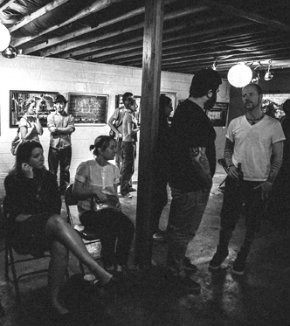New to the neighborhood: Worship and community in East Austin

In 2006, Vox Veniae (“voice of grace”) was a nondenominational church plant growing out of the Austin Chinese Church’s ministry to Asian students at the University of Texas. These were the stereotypical children of “tiger mothers”—Asian moms who raise their kids to be smart, educated, ambitious and self-starting overachievers. But the church’s members felt that they were isolated from other people; they wanted to break down barriers that restricted them to worshiping and doing service only among other Asians or only among the privileged collegiate crowd around UT’s campus.
One day lead pastor Gideon Tsang was riding his bike through a rough area of East Austin and passed Chester’s, a bring-your-own-beer nightclub that had been shut down a month earlier after a police officer shot and killed a neighborhood man outside. Tsang thought this building might be the place to stretch his church’s boundaries. Its members would be the minority in this neighborhood of blacks and Mexican Americans, and they could serve the community by cleaning up a spot known for drug dealing, prostitution and other crime. And so they did. They swept up the condoms and heroin needles, tore up the moldy carpet, evicted the roaches and crickets and removed layers of drywall that had been added over the years when neighbors complained about the nightclub’s noise.
Vox Veniae’s leaders envisioned the 3,500-square-foot building as a place for Sunday worship and a lot more. They began to plan for a community center, Space 12 (on East 12th Street), that could house their church and serve neighbors during the week. They were smart, they were motivated and they had ideas, knowledge and high-tech skills. Several were public school teachers in East Austin, and the church had been sending volunteer tutors into East Austin for years. “We had a lot of college students,” Tsang says. “For people involved in education, it just seemed like a natural fit.”





